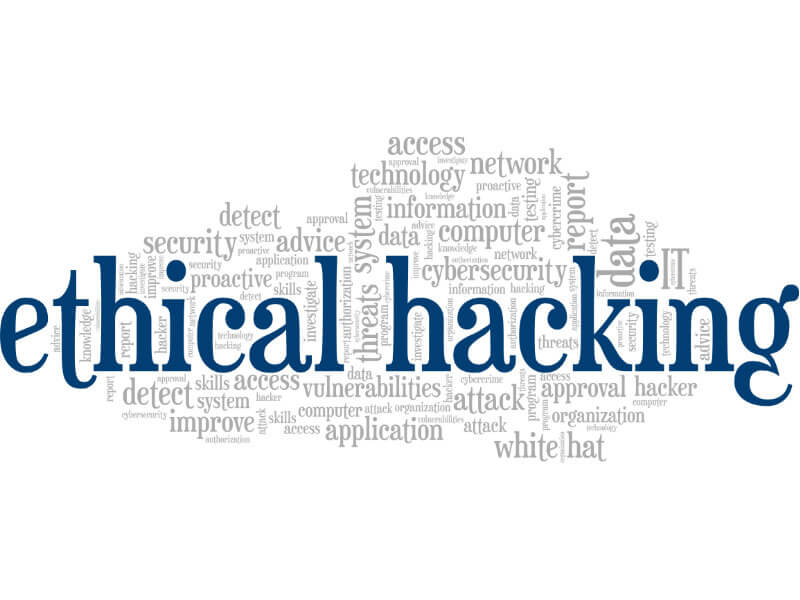Understanding Ethical Hacking- Its Working, Types, and Advantages
You must have heard the term ‘ethical hacking’ thrown around often. The internet is not a safe place anymore. The number of cyberattacks has skyrocketed in recent years. Business owners are especially vulnerable due to the most precious commodity they guard-data.
Ethical hacking is one of the primary strategies that businesses use to protect their data and resources. Even so, many executives aren’t aware of exactly how it works. This article will answer the question, ‘What is ethical hacking?’ and provide an in-depth analysis of what it can do for your business.
What is Ethical Hacking?
Ethical hacking is the process where a professional hacker tries to gain access to an organization’s defenses. The objective is to find weaknesses and areas of improvements in the network. The organization’s executives authorize ethical hacking to improve the cybersecurity standards of the organization.
Is Ethical Hacking a Cybercrime?
No, ethical hacking is not a cybercrime. In fact, businesses hire ethical hacking services to avoid becoming victims of cybercrime. Good ethical hacking services like Tekkis can effectively eliminate the possibility of data breaches.
Is Ethical Hacking Legal?
Yes, ethical hacking is entirely legal. The important thing is to have a written contract between the organization and the ethical hacking service provider. The agreement should cover the limits of the services and any restricted areas that the organization wants to exclude from testing.
How Ethical Hacking Works?
Ethical Hacking is a multi-stage process. The exact stages can vary between different professionals and firms. Ideally, the process is done in the following stages:
Stage 1: Consultation
Before starting with the attack or even hacking any kind of contract, it is important to consult the ethical hacking service provider. Many professionals and agencies go ahead with the consultation only after you hire them and have a contract. This is a very bad practice as it means you are stuck with the agency even if they don’t share your goals.
This is where Tekkis differs from the rest. Tekkis provides a free consultation before proceeding further. You can discuss your needs with our top ethical hacker during the consultation. They will brief you on the process that will unfold.
Stage 2: Setting a Contract
Sign a contract with the ethical hacking service provider once there is a common understanding of the goals. Cybersecurity firms like Tekkis have a rock solid understanding of data sensitivity. Therefore, the entire ethical hacking process is completely safe and the contract stipulates the same. However, if you are hiring an ethical hacker or using an inexperienced agency, you might want a stricter contract to ensure they follow norms.
Stage 3: Reconnaissance
The reconnaissance process is the start of the ethical hacking phase. The hacker will start getting intel on the organization’s setup. This includes knowing the company’s network, host, and people as much as possible. This insight helps ethical hackers in crafting better strategies for penetrating the defenses.
Stage 4: Scanning
Once the ethical hacker has familiarity with the organization’s network, they begin scanning for weaknesses. There are multiple steps to scanning itself. Port scanning checks for open ports so the attacker can gain access. Vulnerability scanning looks for weaknesses in the system. Network mapping provides an idea of the network layout for highlighting entry points.
Stage 4: The Breach
Once the scanning phase is complete, the attacker uses their skill and expertise to access the system. The primary objective of getting past the organization’s defenses is completed. Now the attacker looks for potential damage that can occur.
Stage 5: Damage Assessment
The ethical hacker will look for all the data that can be accessed once the system is breached. They may try to raise their privilege level and check all the areas of the network that are prone to damage once the attacker is inside.
Stage 6: Cleaning Tracks
The ethical hacker clears traces of their entry to the system and the changes they made. This step is important as it depicts how long it will take the organization to find out they have been breached after an actual breach.
Stage 7: Reporting
This is the final goal of the entire process. The ethical hacker will compile a list of findings and present it to the organization. The findings should include all the areas in the company’s defenses that were open to breach. Any vulnerabilities that the professional found must be listed in this report. Additionally, any backdoors and data beaches should be mentioned so the organization can fix it.
What are the Different Types of Ethical Hacking?
There are three different classes of hackers. These are:
White Hat Hackers:
White hat hackers try to penetrate an organization’s defenses with the complete consent of the organization. The aim is to find vulnerabilities in the organization's IT infrastructure and report them back. The organization then works on fixing these vulnerabilities. All ethical hackers fall into this category.
White hat hackers work for small to large businesses, nonprofit organizations, and even governments. Cybersecurity firms like Tekkis have a team of such professionals.
Black Hat Hackers:
Black hat hackers breach the defenses of organizations with malicious intent. They aim to steal data to sell it later or to ask for ransom. The objective of black hat hackers is monetary. They even sell the company’s data to rivals and competitors. Their end game is to make money by compromising organizations.
White hat hackers work to stop the potential damage that black hat hackers can cause. All types of unauthorized data breaches and ransomware attacks fall into this category.
Grey Hat Hackers:
Grey hat hackers also compromise the defenses of organizations without authorization. However, their goal isn’t monetary. The breach can be done with both good and bad intentions. Some of these hackers report the vulnerabilities back to the organization. Others publish it on the internet without any personal gains. If a grey hat hacker makes a personal monetary profit from the breach, they immediately become a black hat hacker.
Which Type of Hacking is Legal?
Only white hat hacking and, in turn, ethical hacking is legal. This is because it is done with the consent of the organization. Black hat hacking and grey hat hacking are completely illegal activities punishable by law.
Benefits of Ethical Hacking For Businesses
Ethical hacking is an important part of a company’s IT budget. It offers benefits such as:
-
Eliminating
Vulnerabilities:
This is the key benefit of ethical hacking. It detects the vulnerabilities in a company’s IT infrastructure so they can be fixed before attackers exploit it.
-
Fixing
Authorizations:
Another benefit of ethical hacking is that it can detect and fix any broken authentication protocols. This ensures that any bad actor inside the company cannot access higher privileged data.
-
Understanding
cyberattackers:
Ethical hackers are skilled at their craft. They know the mind of attackers and how they will breach an organization. This helps a company in foreseeing potential future attacks.
Potential Limitations of Ethical Hacking Services
Ethical hacking services are a must-have for businesses who are serious about securing their IT network. Even so, there can be some limitations to the process. These limitations are:
- Fixing Bugs:Ethical hacking services can only find vulnerabilities. It is up to the organization to fix them.
- Skill Level: Skilled ethical hackers are required to gain proper benefits from ethical hacking services.
How to Get Ethical Hacking Services For Your Business
Tekkis is the leading ethical hacking service provider in the US. Operating in the industry for decades, professionals at Tekkis have a wide range of ethical hacking certifications, such as CEH Elite, CCT, CDT, and CPENT.
Additionally, Tekkis even helps you in fixing the issues with its Blue Teaming services. Being a long-standing professional cybersecurity firm, Tekkis treats your data and any found bugs with the utmost confidentiality.
You can schedule a free consultation with a Tekkis expert to discuss your needs.
Endnotes
Cybersecurity has become a top priority of businesses in the last few years. Ethical hacking is crucial to cybersecurity, giving organizations an excellent, unbiased report of their current defenses. If you are an executive who values your business security, get in touch with Tekkis to discuss your requirements.



